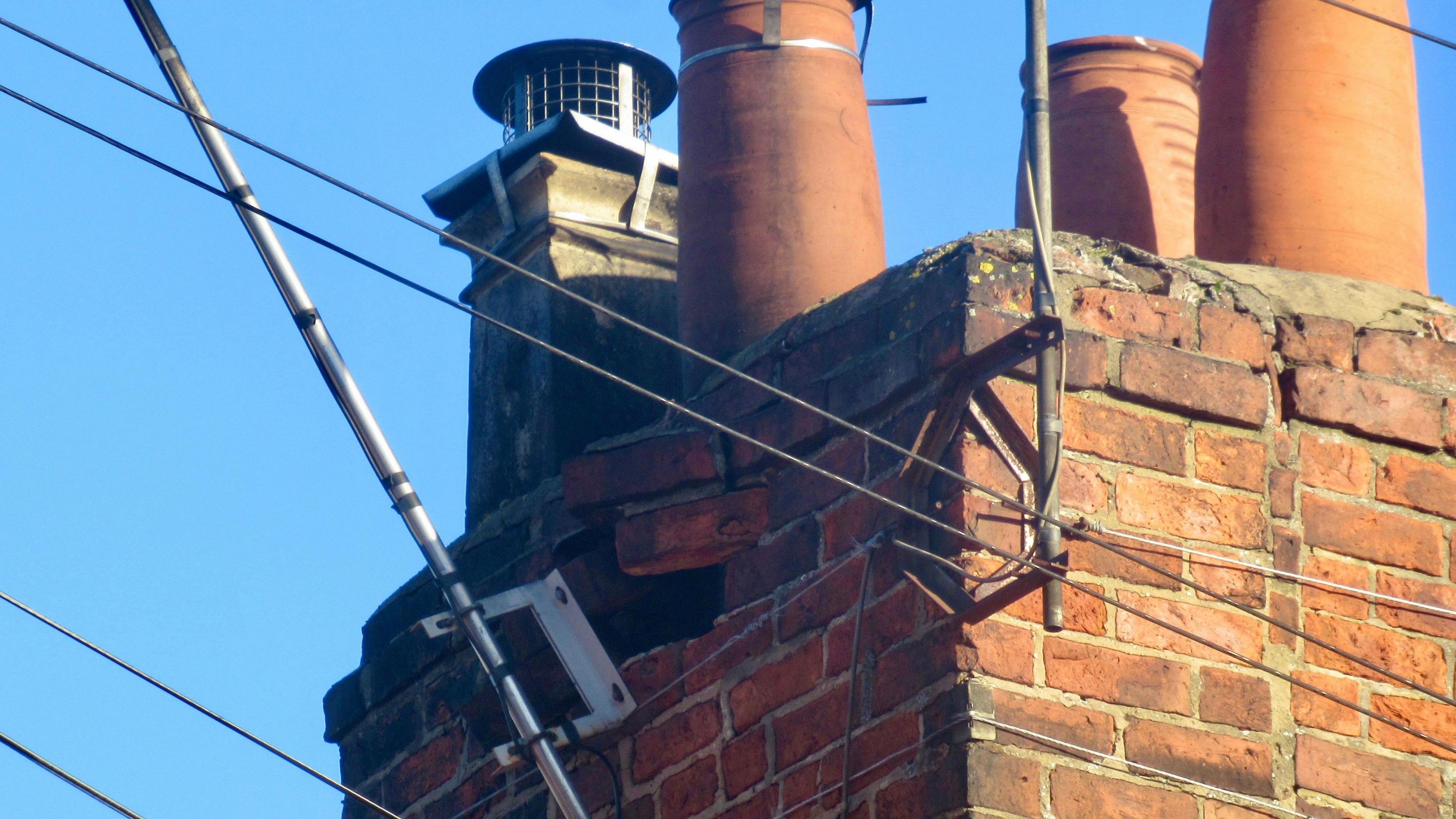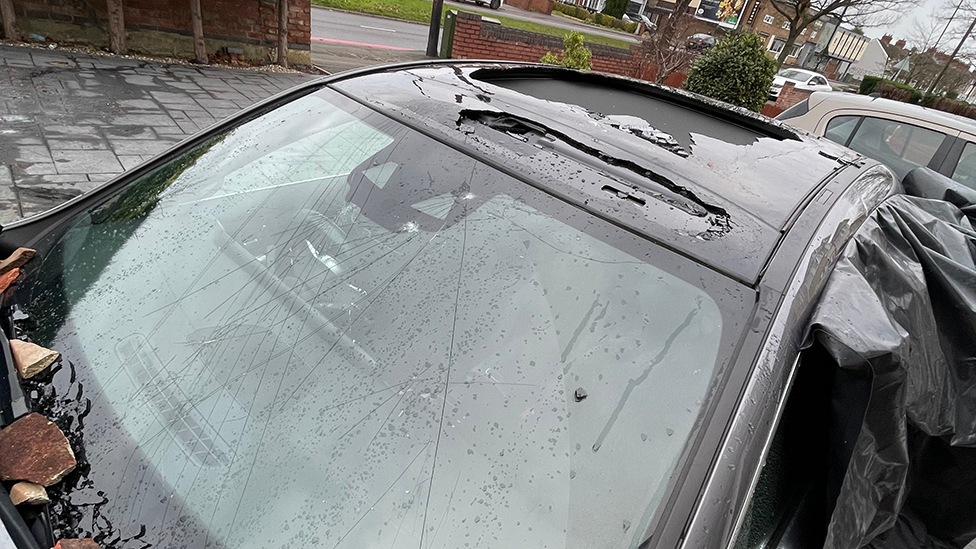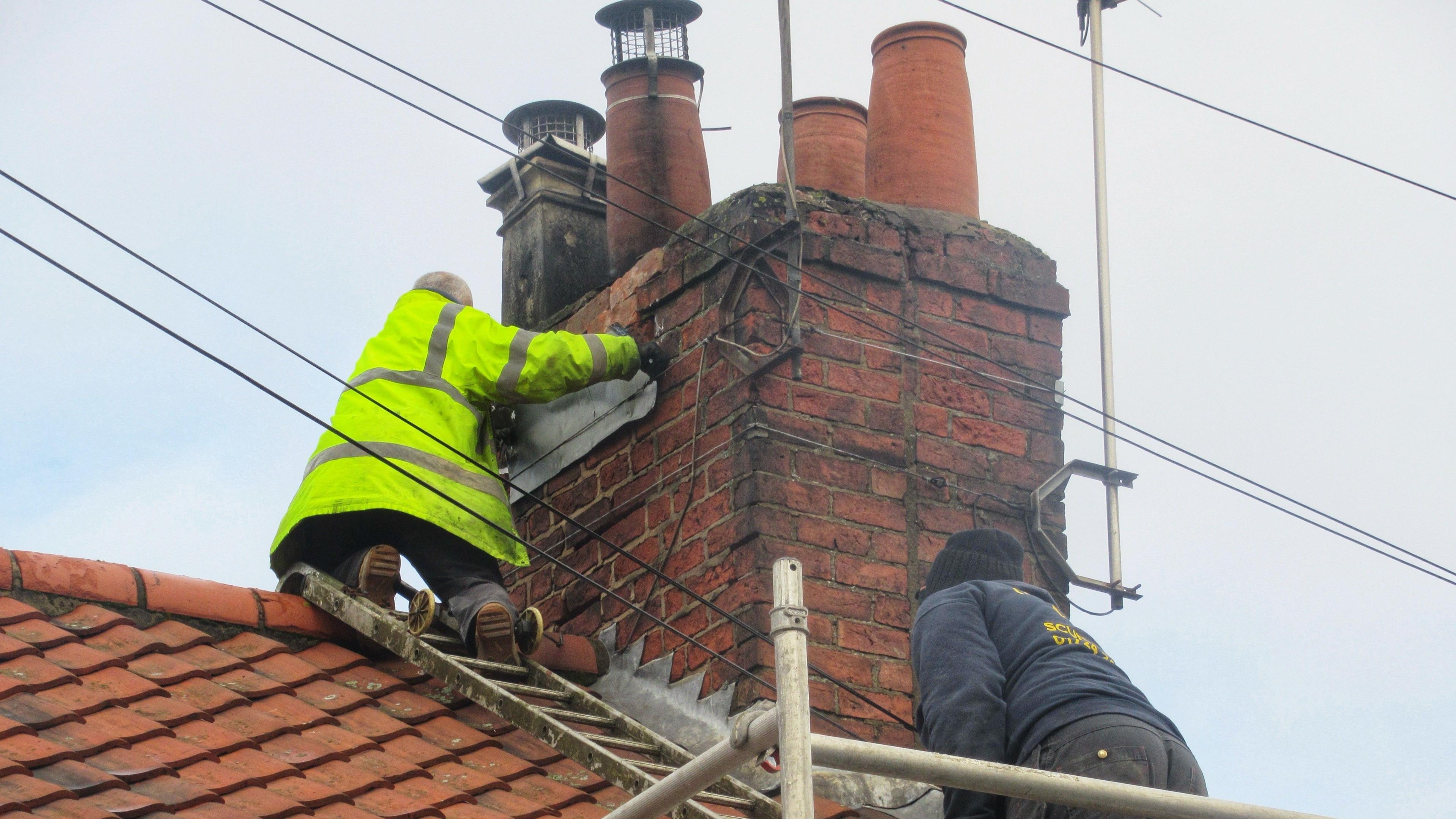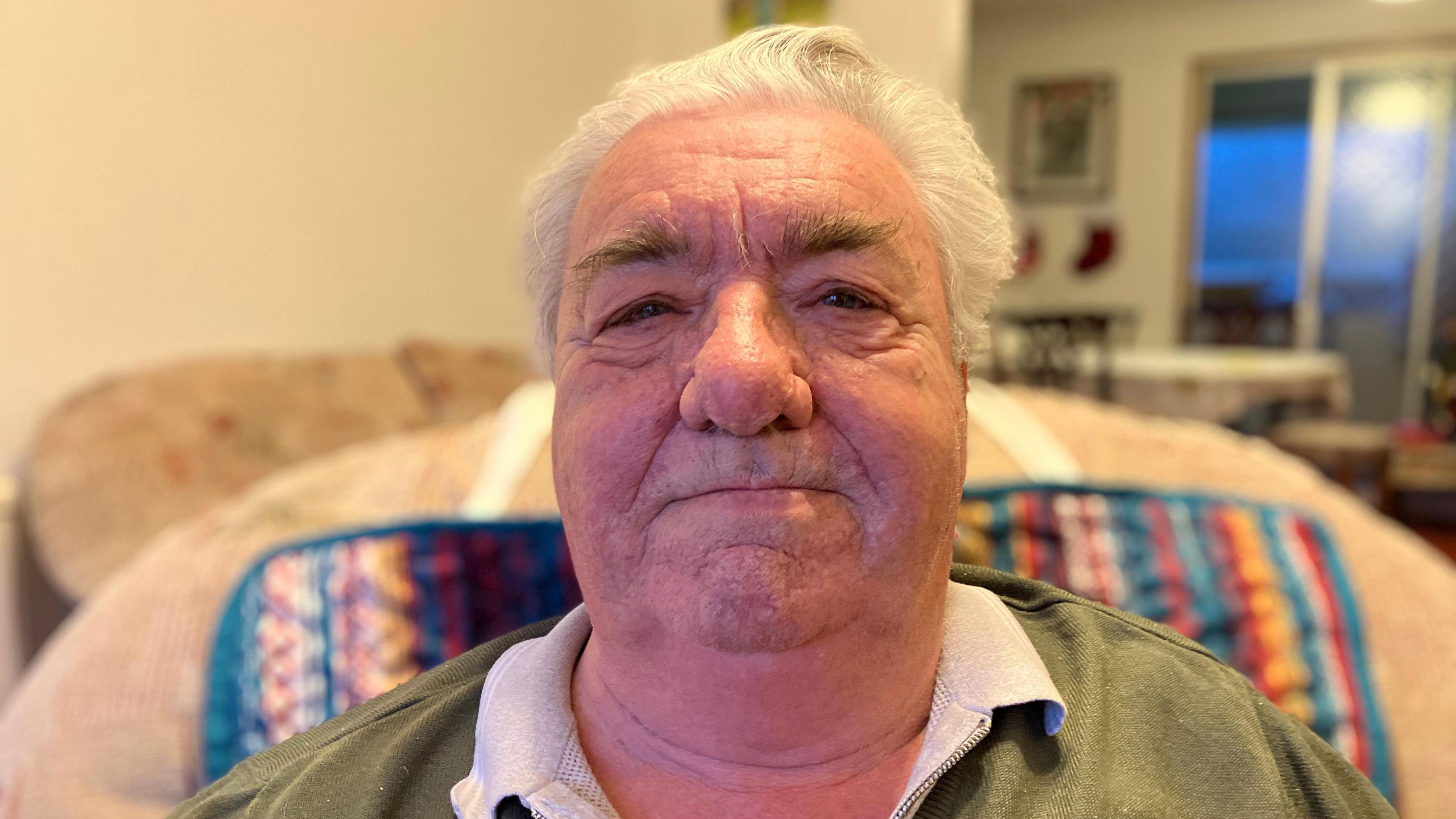Storm damage payouts refused in wind speed rows

Angela Clarke had to pay to have her chimney repaired after a claim was refused
- Published
Homeowners who had insurance claims for storm damage rejected have spoken out after a man was originally refused a payout because the wind was 2mph too slow.
Dennis Iliffe said his insurer initially said wind speeds in Kidderminster during Storm Darragh hit 53mph, just short of the 55mph required for a claim.
Residents across the country have also contacted the BBC after their claims were refused because it was "not windy enough".
The Association of British Insurers (ABI) said insurers looked at wind strength, but customers could complain to the company and then contact the ombudsman if they were not satisfied.
In Mr Iliffe's case, insurer Ageas later agreed to settle the claim after he spoke to the BBC.
Another person, living in nearby Powick said their claim was rejected by a different insurer as the wind only reached 49mph, despite losing the felt from their garage roof.

Dennis Iliffe's insurance row has led other householders to raise the same issue
Another reader, this time in Stockport, contacted the BBC to say that their insurer also refused a claim over the wind speed during Storm Darragh, even though much of the roof over his bedroom ended up "landing on the front lawn".
Andy Kearney, 79, from Cornwall, said he lived above sea level in view of open fields near the sea.
After severe weather removed roof tiles and badly damaged his chimney, which had to be replaced, his insurer would not pay.
"My insurer refused to pay out, saying the wind speed was not severe enough to cause that damage on that date," he said.
But he said the wind speed gauge used was 250 metres lower and in an area that was more protected from gales.

Ridge tiles from a house landed on this car just three weeks old
In south Wales, Lyndon Witts, 71, said his insurer refused a claim after his roof leaked.
Describing it as "a joke", Mr Witts, of Caerphilly, said his company told him it was "not windy enough and not enough rain fall".
Last weekend's storm left a trail of destruction across the country.
One resident in Coventry said the wind had brought down ridge tiles from their semi-detached house, smashing the sunroof and other parts of their new car.
While insurers have pledged to fix the now-leaking roof, they were having to use savings to pay for other fixes.
Another woman in Oswestry, Shropshire, said she had been forced to pay £800 to fix a manhole and other repairs after sewage leaked into her home.
Chimney 'could have fallen'
Angela Clarke, 70, from North Lincolnshire, said her chimney was badly damaged in storms and the aerial was also blown down.
"Insurance refused to pay, saying the problem was caused by cracks in the flaunching rather than the storm that blew it loose," she said.
Describing her insurance company as "horrendously unhelpful", she said she told them that the chimney stack would not withstand another storm and could potentially fall and injure or kill someone - or come through the roof.
"They really couldn't care less, which left us very distressed," she said.
"Fortunately, the local authority helped us by doing an emergency interim repair after agreeing it could endanger life."

Angela Clarke said a roofer told her nearly all claims for storm damage to chimneys were being turned down
She said one roofer had told her nearly all claims for storm damage to chimneys were being turned down by insurers.
In her case, the chimney cost her more than £1,000 to fix.
What can you do if a storm claim is refused?
Age UK recommends that victims of flooding in particular keep damaged items as evidence, rather than begin the clear-up straight away.
If the first claim is rejected, the ABI urged people to complain to their insurers and if they were still not satisfied to take the case to the Financial Services Ombudsman, which would adjudicate on the claim.
The ombudsman said its service was free and offered consumers a fair and independent ruling on each case.
On its website, it said its general view was "that damage can occur even when the wind speed is lower than level 10 on the Beaufort scale", which starts at 48 knots, or 55mph.
Mr Illife's case shows that insurers can change their minds over claims, with Aegeas saying it had reversed its decision after asking for "additional information".
An ABI spokeswoman said: "Insurers expect bad weather at any time and their priority is always to help their affected customers recover as quickly as possible.
"When assessing a claim for wind damage caused by a storm, insurers will often look to understand if the wind was strong enough to damage an otherwise well-maintained property."
The ABI said every insurer would approach claims differently.
There are agreed minimum levels of understanding for what constitutes a storm, but insurers can still use their own definitions.
With more frequent and severe weather events, the ABI said it was important building resilience was improved and buildings were constructed to a standard that could withstand stronger winds.
Get in touch
Tell us which stories we should cover in Hereford & Worcester
Follow BBC Hereford & Worcester on BBC Sounds, Facebook, external, X, external and Instagram, external.
Related topics
- Published12 December 2024
